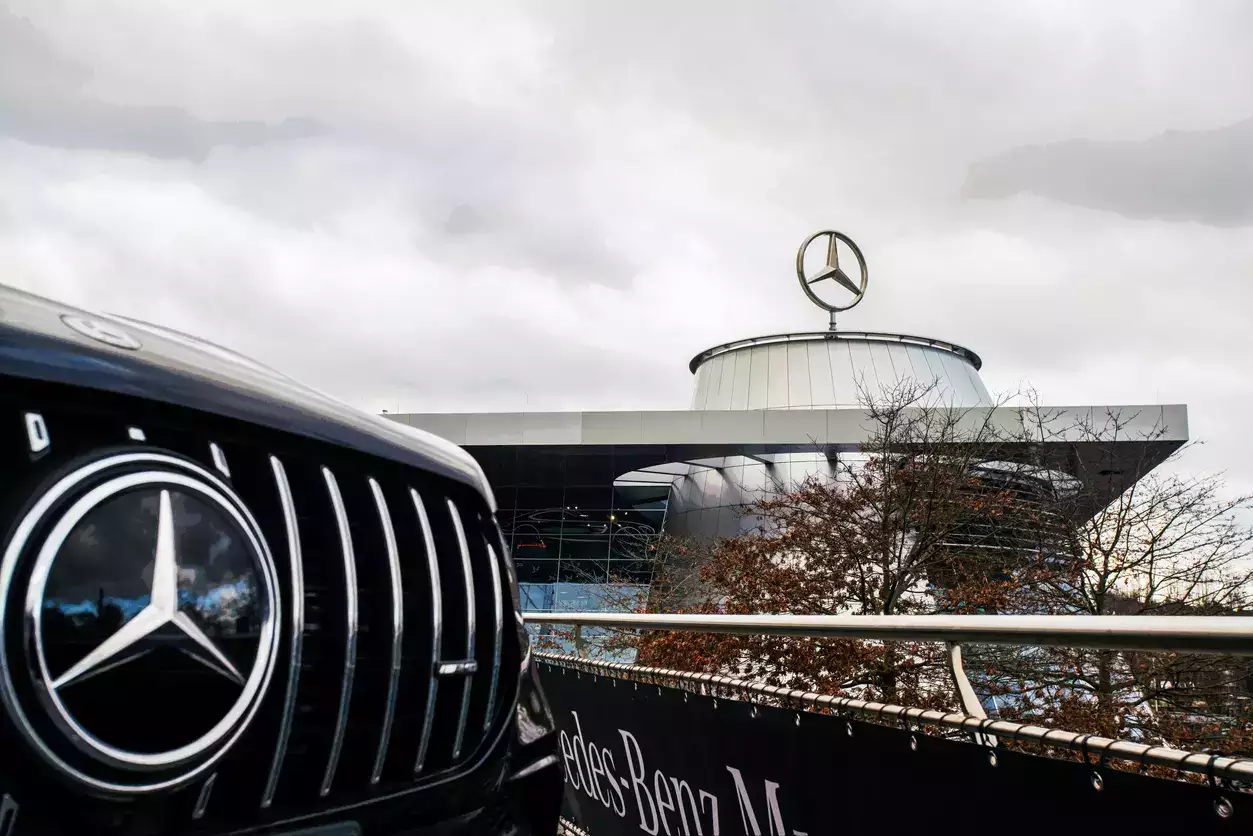 The company's dealer partners have invested INR 150 crore in transforming the 40 outlets this year, he said adding, "investments to the tune of another INR 150 crore to INR 200 crore will happen in the next 12 to 18 months."
The company's dealer partners have invested INR 150 crore in transforming the 40 outlets this year, he said adding, "investments to the tune of another INR 150 crore to INR 200 crore will happen in the next 12 to 18 months."New Delhi: German luxury carmaker Mercedes-Benz is taking learnings on direct-to-consumer retailing of vehicles to its global market from India, where it has been able to clock a revenue of INR 40,000 crore in three years of starting its 'Retail of the Future' model, a senior company official said on Tuesday. Mercedes-Benz India, which on Tuesday launched its new 'AMG C 63 S E PERFORMANCE' model equipped with F1 hybrid technology priced at INR 1.95 crore, plans to complete conversion of all of its existing 100 outlets under the direct-to-consumer model in the next 12 to 18 months.
"This October, we completed three years of the direct-to-consumer model that we started. When you look at the numbers, (we have sold) 50,000 cars and INR 40,000 crore turnover coming just in the last three years out of 'Retail of the Future' direct transactions," Mercedes-Benz India Managing Director & CEO Santosh Iyer told PTI in an interaction.
He further said, "What makes us more proud is also that after India, now Germany, UK, Thailand, Turkey and Australia, a lot of markets have gone live with the same model. That clearly shows the strength of the business model."
In contrast to other players in the Indian automobile industry where companies have been seen taking steps to deal with excess stocks and inventory, Iyer said, "We are the only brand which is not having any stocks, because our model is direct to consumer, and we have no stock at dealer partners enabling them to invest in better sales and service facilities."
Stating that there have been a lot of learnings from India, he said, "We have also had visitors from other markets coming to India to learn. I would say my colleagues from Turkey were here, Mexico was here and also from many other markets have come and are trying to check what happens. They still continue to come to see how we are doing the direct-to-consumer model retailing. I think that's really a proud thing for us to share our knowledge with.".
While direct-to-consumer retailing was tested in South Africa, Austria and Sweden, Iyer said, "India has been one of the most successful markets... The full-blown end-to-end, in terms of IT landscape, system, processes, was done in India.".
Sharing the company's plans to strengthen direct-to-consumer retailing, Iyer said,"We have more than 100 outlets in India in 50 cities. All of them will be transformed into the 'Retail of the Future' model in the next 12 to 18 months, out of which 40 will be this year."
The company's dealer partners have invested INR 150 crore in transforming the 40 outlets this year, he said adding, "investments to the tune of another INR 150 crore to INR 200 crore will happen in the next 12 to 18 months."
On the demand front, Iyer said Mercedes-Benz India expects to close 2024 with double-digit growth with another record bettering last year's sales of 17,408 units.
The introduction of AMG C 63 S E PERFORMANCE is the company's 14th product launch in 2024, four more than what it had announced in the beginning of the year in order to rev up volumes of its top end vehicles (TEVs) which are priced INR 1.5 crore onwards.
"We started the year saying (we will have) 10 launches. We are doing 14 and out of the 14 launches, 10 of them are top-end cars. So that clearly shows our focus as 25% of our sales are coming from that segment," Iyer said. For the luxury car segment, he said the industry is expected to touch 52,000 units in total this year, up from around 47,000 units last year.
When asked about the outlook for next year, Iyer said, "I think next year will be a mixed bag. On one side we have all the geopolitical developments which side it may turn, we have to wait and see how that develops."
On the other hand, he said, "This year we had a couple of months and quarters which were low on demand and a couple of quarters and months which were super high on demand. So how that pans out next year will have to be seen."
